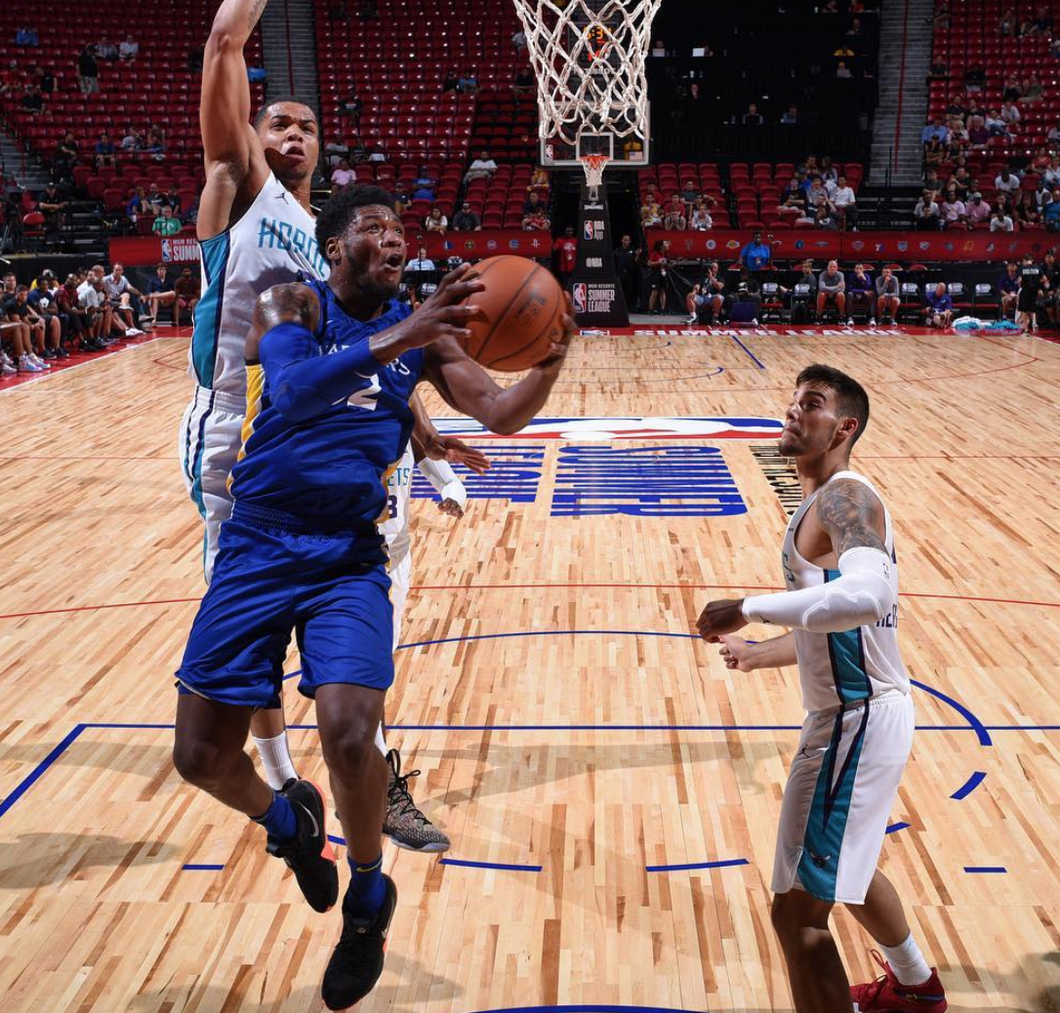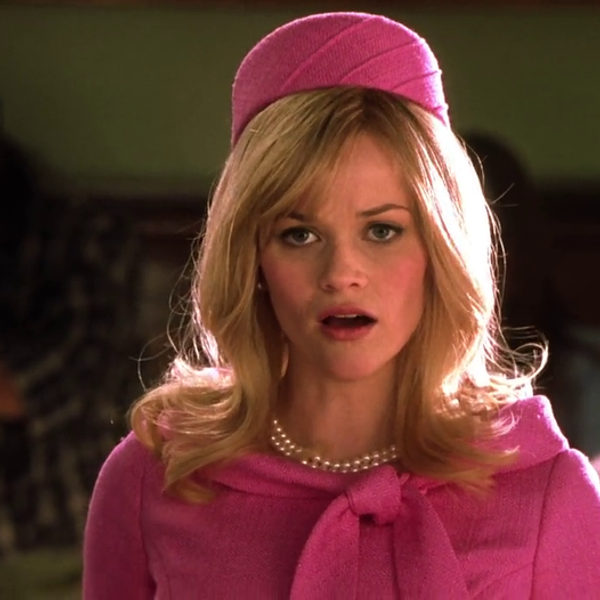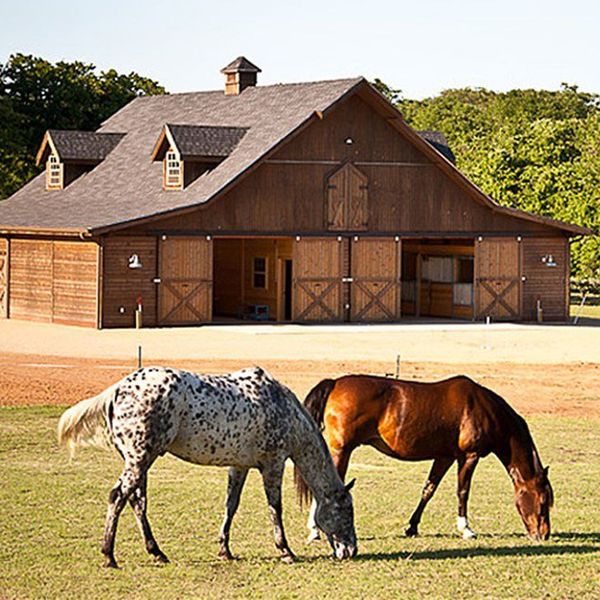There's no denying Golden State's status as a Super Team in the NBA. Their recent dynasty began in the 2014-2015 season when the organization won the championship with break-out MVP, Steph Curry, All-Star and fellow Splash-Bro, Klay Thompson, and Finals MVP, Andre Iguodala, leading the team to victory over the Cavs. The following year they started off the season on a 24-0 hot streak (the best start in NBA history) and finished up the regular season with an unprecedented 73-9 record. Curry, Thompson, and Draymond Green were all selected as All-Stars that year, but the team would shockingly blow a 3-1 lead to the King (LeBron) and his Cavs in the Finals. Following the disappointing loss, the Warriors made the internet-breaking decision to sign arguably one of the best SF's in NBA history, Kevin Durant, to the roster. The idea of combining three already great players coming fresh off a record-breaking season with a seven-time All-Star (with 4 scoring titles and an almost unstoppable offensive repertoire) sparked yet another resurgence of the 'Super Team' conversations that some forget have existed in the NBA since the 60s.
The so-called "Death Lineup" would confirm their dominance and avenge the team's embarrassing loss the previous year by defeating Cleveland 4 games to 1 in the 3rd consecutive Finals match-up between the two clubs. This past season, Golden State continued the fortification of their dynasty with yet another ring, beating what one could arguably chalk up to LeBron and some YMCA players. As of July 2nd, we found out that evidently enough just isn't enough for this San Francisco Bay Area squad. The team signed All-Star DeMarcus 'Boogie' Cousins, who averaged 26 points, 12 rebounds, four assists, 1.5 blocks, and 1.5 steals per game over the last five years, to a 1 year/ $5.3 mil contract (Kurtenbach). Next year, once Boogie's injured Achilles heals enough for him to return to action, Golden State will have 5 All-Star starters, something even LeBron taking his talents to Los Angeles will have a tough time competing with. If the Warriors and their extra-Super Team pull off their 5th straight championship appearance and 4th ring in 5 years, which the Vegas Oddsmakers give them a -185 chance of doing as of July 3rd, their legendary run would be the closest in league history to paralleling the Celtics' reign in the 1960s with 11-time-champ, Bill Russell.
Many critics of the trend of 'Super Teams' condemn athletes like KD or LeBron (when he joined the Heat with Chris Bosh and Dwayne Wade in 2010) for ring-chasing and hurting the 'excitement' or 'competitive balance' in the league, but what they seem to conveniently ignore is that this pattern has been happening for decades. Out of 72 NBA FInals, only 18 out of the current 30 teams have taken home the title. 5 franchises hold claim to 70% of all championships (Boston has 17, Lakers 16, Bulls 6, Warriors 6, and the Spurs 5). That being said, take this into consideration...Only two teams in league history have ever won a championship in a season where none of their starters made an All-star team: the 1950 Minneapolis Lakers, because the All-star selection didn't start until 1951, and the 1999 Spurs because the All-Star game was canceled due to the lockout (Petroff). It doesn't take a rocket scientist to deduce that in order to make a championship run, you gotta have good players. The 2018 GSW Champions weren't the first team with 4 All-Star starters, and probably won't be the last. For example, the 1983 champion 76ers were represented by Maurice Cheeks, Julius Erving, Moses Malone, and Andrew Toney.
Now, that Philly team only won that one championship together, but let's take the unrivaled '59-66 and '68-69 Celtics. It would take combining all of MJ, Kobe, The Big Fundamental, Bird and Kareem's individual rings to match the number of championships Hall of Famers Bill Russell, Bob Cousy and John Havlicek won during this era (Friedman). Sam Jones, Tom Heinsohn, and Bill Sharman would also make All-Star selections for the league while earning rings for the C's that decade. While a Russell, Cousy, and Havlicek trio existed in a part of basketball history with less athleticism and a different style of play, they were considered unbeatable at that time in a way that KD, the Splash Bros, and Boogie haven't quite reached.
Many talk-show hosts, sports journalists, and opinionated fans have come up with plenty of their own requisites for what a 'Super Team' truly is. Steve Aschburner, who writes for NBA.com defines a Super Team as possessing, "two, three or more stars on its roster, any one of whom would be able to anchor a franchise on his own," and having used, "trades and/or free agency to unite those stars, either in their prime or at least after obvious, recognized success," and finally it needs, "to be a reasonable contender, not merely a collection of big names past their prime and far back of the reigning conference or league champs," (NBA.com). I also like Friedman's simplification of these standards down to a team merely having substantial star power, league impact, and the ability to win (especially championships). However, no matter how you choose to specify it, the presence of 'Super Teams' throughout the NBA's history is undeniable. Here are just a few other examples.
The Celtics's don't hold 24% of all the NBA titles for just any reason. Their 60s dynasty would prepare the franchise for an inevitable future of Super Team success. In the 1980s, the Hick from French Lick (Larry Legend himself) would lead this decade's 'Big 3' of Kevin McHale (one of the best power forwards of all time) and 9-time All-Star Robert Parrish to 3 championships. These rings came during a decade where their rivals the Los Angeles Lakers also happened to have their own roster of stars including Kareem, Magic Johnson, and Norm Nixon who brought home 4 championships to the City of Angels during that same decade.
Not all Super Teams are guaranteed success. In 1996, The Houston Rockets tried adding Charles Barkley to their roster, which was already home to Hakeem Olajuwon and Clyde 'The Glide' Drexler. Three seasons together and no rings, despite legitimate records and impressive stats. Before the start of the 2003-2004 season, Shaquille O'Neal and Kobe Bryant were joined by veterans (and former All-Stars) Karl Malone and Gary Payton in hopes to extend their postseason run, but they fell short to the Pistons and disbanded shortly after. A little later on, the Lakers again attempted to form their own unstoppable combination of players in 2012 when they acquired Steve Nash and Dwight Howard to play with Kobe and Pau Gasol. Bryant and Howard couldn't get along, Nash was injured, and the Lakers were swept by the Spurs in 4 games in the first round of the postseason.
In 2007, coming off of one of their worst seasons in Franchise history, the Celtics followed in their organization's past footsteps and signed Kevin Garnett and Ray Allen to join Paul Pierce (and up and coming point guard Rajon Rando) to attempt to create a modern-day 'Super Team' with the 'Boston Three Party" leading the charge. Boston would completely turn their trajectory around from the previous season and go on to win the 2008 Championship and conference championships in both '08 and '10. Ray Allen must've been a huge fan of the whole 'Super Team' mantra because he left the Celtics in 2012 to go to South Beach where LeBron and Miami's version of the 'Big 3' were waiting with open arms. LeBron made his 'decision' to join the Heat the same offseason that the franchise signed free agents Chris Bosh, and Dwayne Wade and the Super Team comments came flooding in. The team would go on to win 2 championships together (not 4, not 5, not 6) before LeBron returned home to Cleveland where he'd spend the next 4 years trying to prove he didn't need other All-Stars to get his own rings (which technically in 2016 he did, as he was the only All-Star represented on his squad that year, but he also had Kyrie, so...).
By all means, the Warriors adding Cousins to their already juiced-up roster is another level of the Super-Team building phenomena that has existed in this league for decades, but that doesn't necessarily make it a 'bad' thing. Team owners and general managers want banners. Players want rings. That's their livelihood and they're all going to do whatever is within their capabilities to make those things happen. The better your starting 5 is, inevitably, the better chance you have of winning. The more you win, the more fans and media attention you'll receive, and therefore (c'mon let's not pretend this whole thing isn't about the money) the more revenue you'll bring in for your franchise and for the league. If you work for a software company and you have the opportunity and means to hire the 4 best computer programmers available in the field, why wouldn't you? If you're an up and coming CEO, wouldn't you want to find the company with the best chance at business success? Additionally, I believe that one reason people seem to struggle today with the concept of a 'Super Team' is that modern media has developed a focus on the individual players of the game as more essential or influential than 'teams' themselves. Michael Jordan was idolized as 'carrying' the Bulls of the 90s 'on his back' when in reality he also had future Hall of Famer Scottie Pippen on his team. Yes, obviously MJ was probably the most impactful part of Chicago's dominant success, but that set up a precedent in the league that you didn't need 'teamwork' to win, you could just find yourself a single hero and be just as fine. Maybe Super Teams could be a good thing for the league in that regard. It could bring back the more traditional notion of 'team basketball' and grow fan bases and boost ratings, (*which actually went up 8% this past season with all four partnered networks seeing viewership increase (ABC up 17%, TNT up 13%, ESPN up 4%, and NBA TV up 1%)) (Wallenstein). It'll be interesting to see what other teams come up with to stop the Warriors, but I wouldn't be surprised if, in the next few years, they aren't the only team with a seemingly unfair advantage on their roster.







 The minimum wage is not a living wage.
StableDiffusion
The minimum wage is not a living wage.
StableDiffusion
 influential nations
StableDiffusion
influential nations
StableDiffusion












